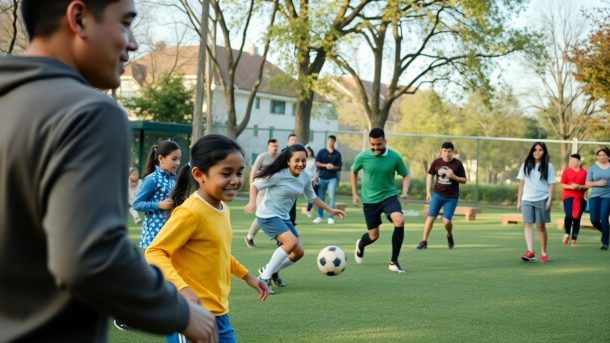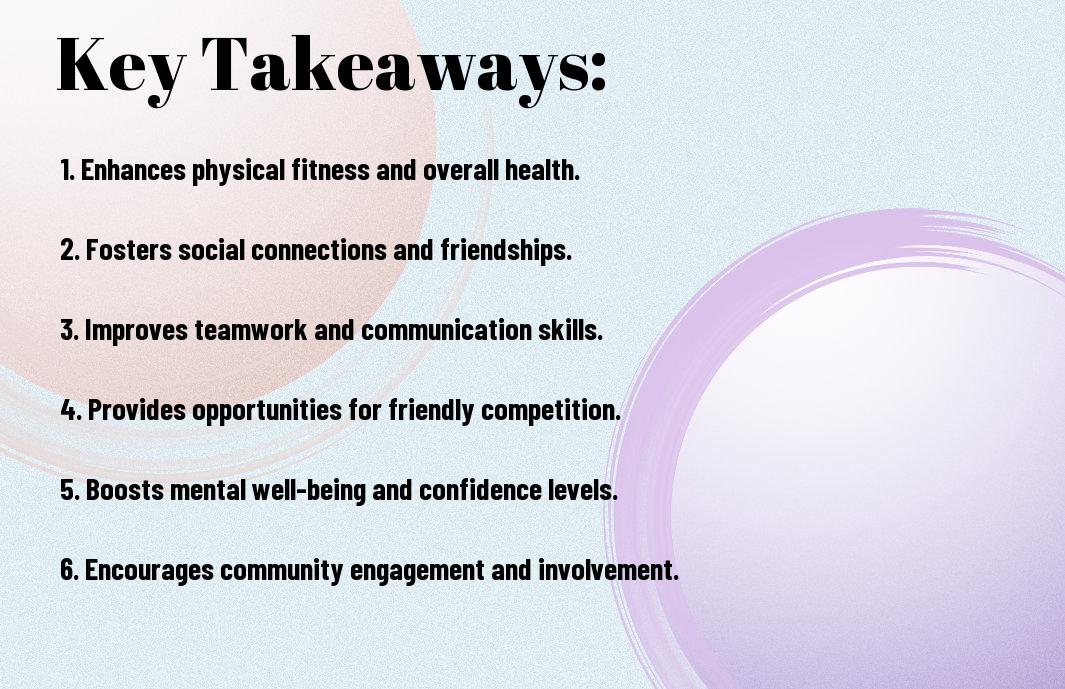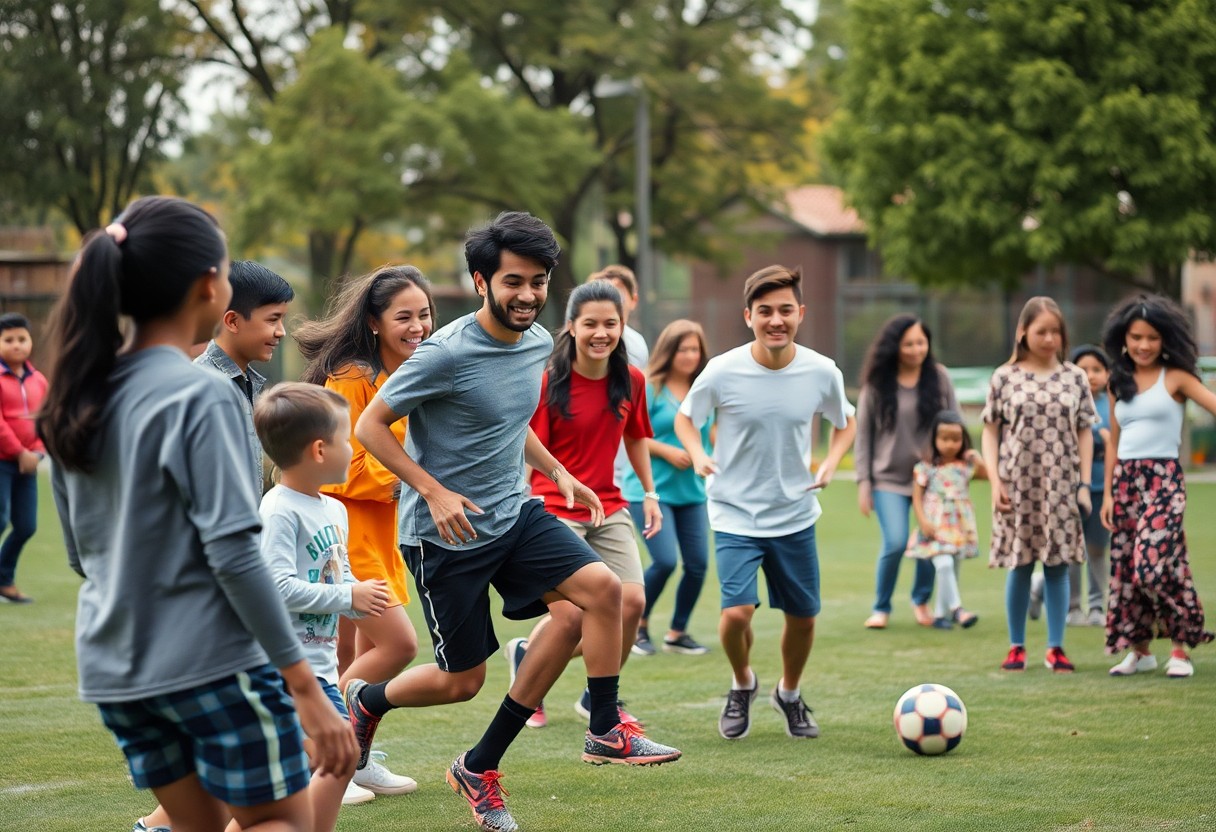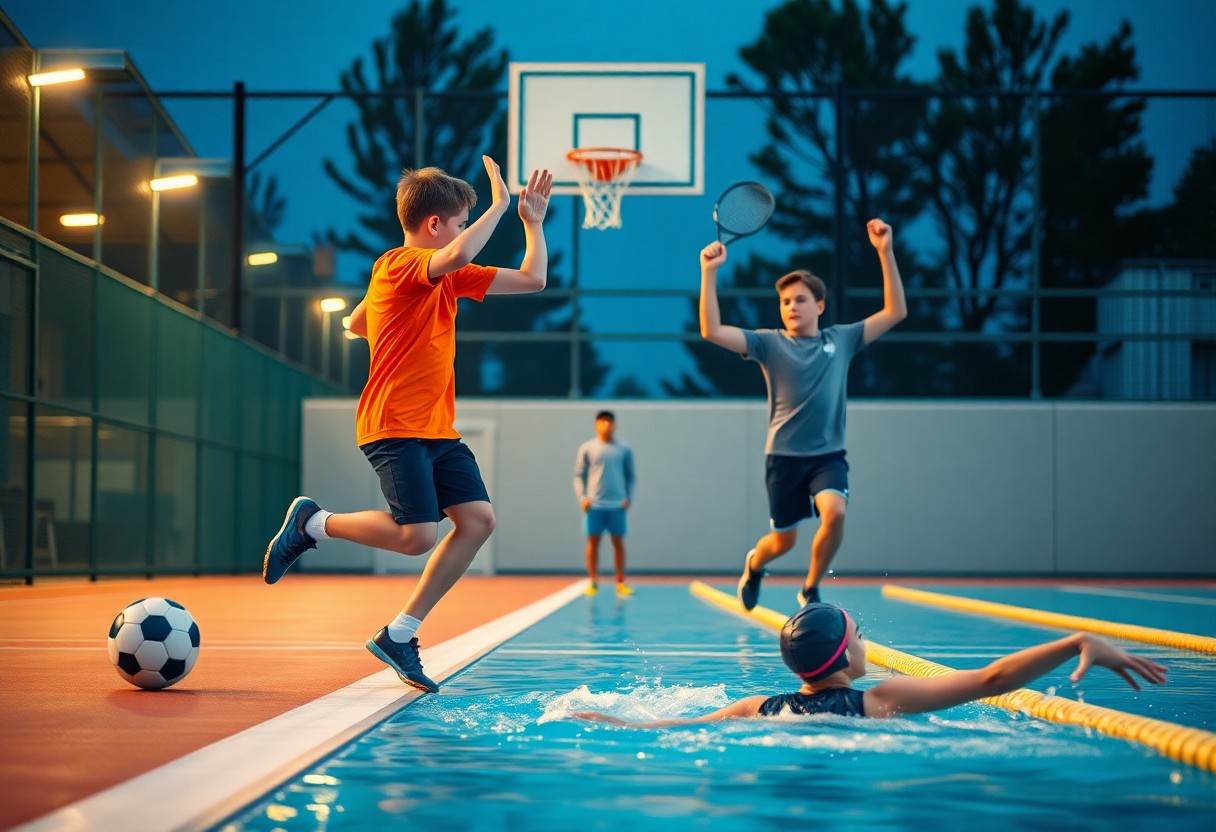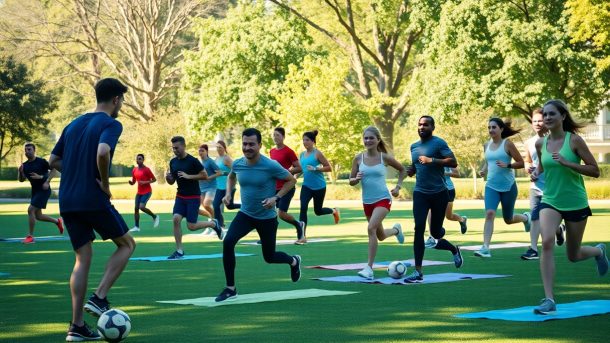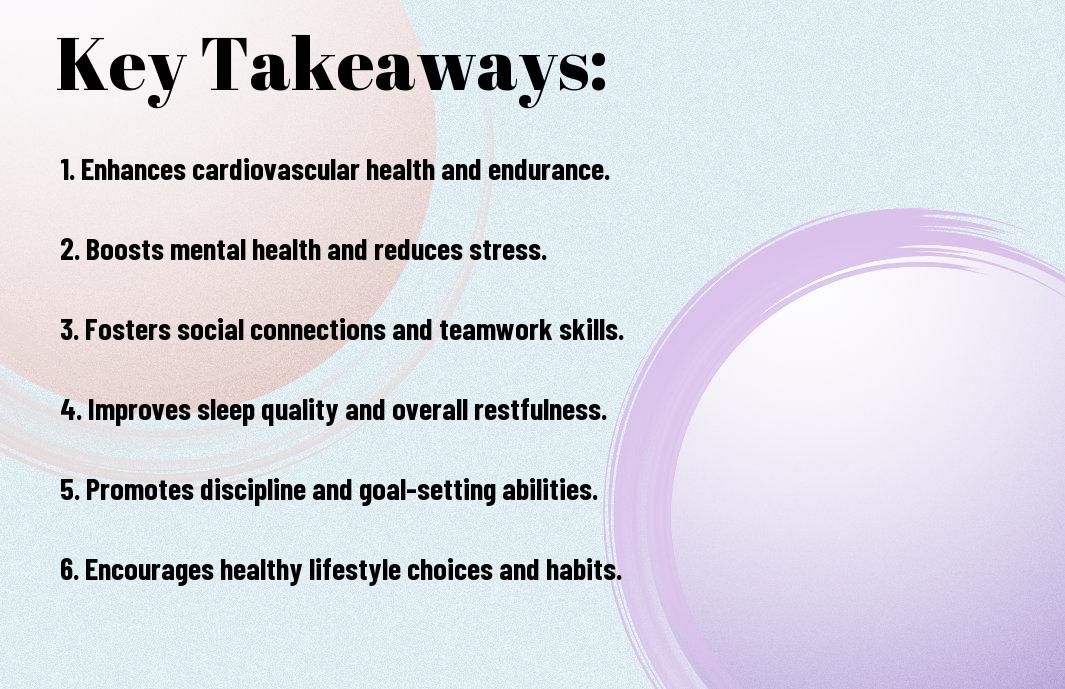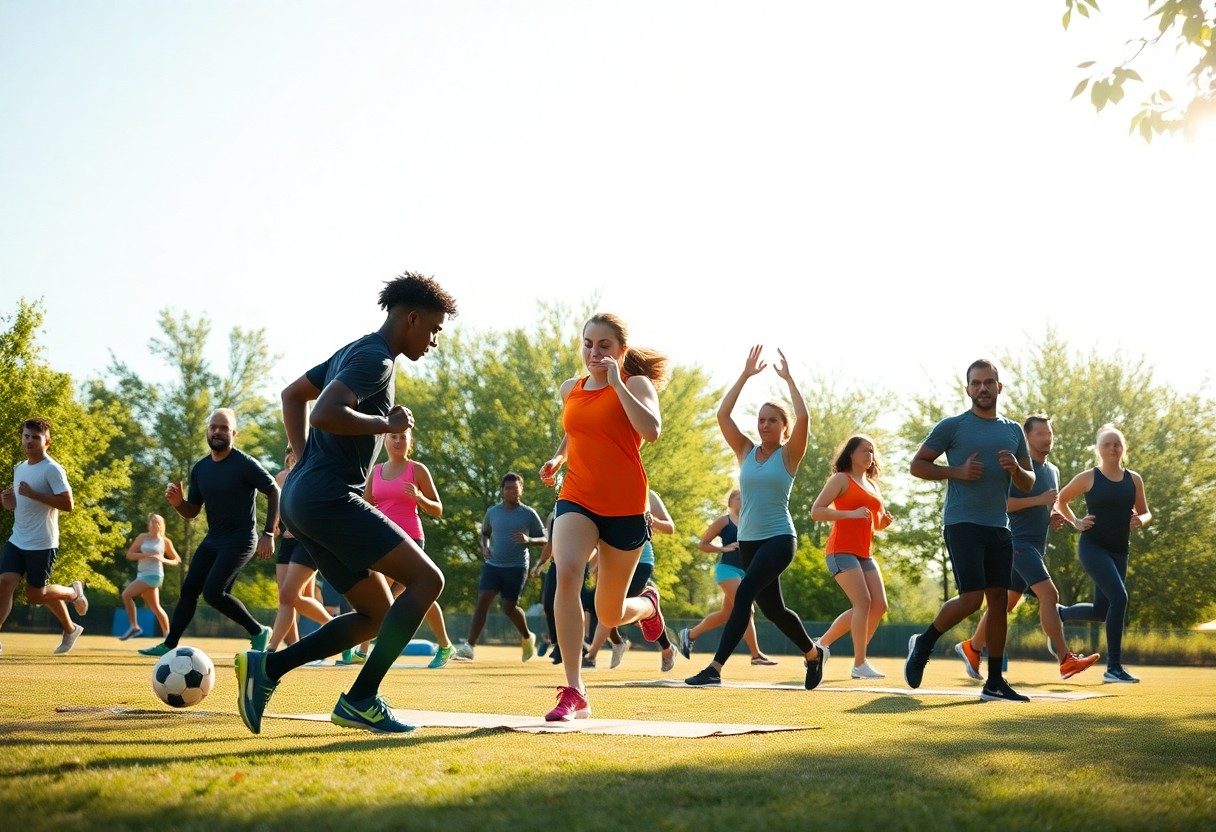There’s a wealth of benefits to integrating martial arts into your cross-training regimen. By doing so, you enhance your overall fitness, improve your agility, and develop mental resilience. Not only does martial arts provide a unique workout that challenges different muscle groups, but it also fosters discipline and focus, crucial qualities for any athlete. Whether you’re a beginner or an experienced practitioner, adding martial arts to your training can elevate your performance and enrich your fitness journey.
Key Takeaways:
- Improved Strength: Martial arts training enhances overall muscle strength and power, contributing to better performance in other athletic disciplines.
- Increased Flexibility: Engaging in martial arts can lead to greater flexibility, which is beneficial for injury prevention and overall physical agility.
- Enhanced Coordination: The movements and techniques in martial arts help develop hand-eye coordination, balance, and body awareness, which are vital for other sports.
- Cardiovascular Endurance: The dynamic nature of martial arts provides an excellent cardiovascular workout that boosts stamina for various types of physical activities.
- Mental Toughness: Practicing martial arts fosters discipline and mental resilience, traits that can boost performance and focus in other sports.

The Physical Benefits of Martial Arts
The physical benefits of martial arts are extensive, making it an excellent choice for cross-training. Engaging in various martial arts disciplines not only enhances your overall fitness but also targets specific muscle groups, increasing both strength and endurance. As you progress, you will develop better body mechanics and increased stamina, allowing you to perform at your peak in other sports and activities.
Improved Strength and Endurance
Benefits of martial arts training include significant improvements in both strength and endurance. As you practice techniques and drills, your muscle fibers engage in dynamic movements, promoting growth and resilience. This enhanced strength translates to improved performance in other physical activities, while increased endurance helps you sustain higher energy levels during workouts.
Enhanced Flexibility and Coordination
Benefits of martial arts extend to enhanced flexibility and coordination, which are vital for overall physical performance. The diverse range of movements often found in martial arts—such as kicks, punches, and stances—will challenge your body and promote increased flexibility. You’ll notice greater range of motion in your joints and improved balance and coordination, which can greatly benefit your performance in other sports.
Considering that flexibility and coordination are often overlooked aspects of training, incorporating martial arts into your routine can help address those needs effectively. The diverse range of techniques practiced demands a level of agility and body awareness that will translate well into other athletic endeavors. As you refine your movements and gain greater control over your body, you’ll also reduce the risk of injury, enhancing your abilities both inside and outside the dojo.

Mental Health Advantages
Assuming you initiate on martial arts as a form of cross-training, you will likely experience significant mental health benefits. Engaging in various martial arts not only enhances your physical performance but also promotes emotional well-being. Techniques you learn in martial arts can help you manage anxiety, increase confidence, and improve your overall mental resilience. For more insights on how does cross-training different martial arts benefit you, consider exploring the mindset shift that comes with learning diverse techniques.
Stress Relief and Mindfulness
Mindfulness is a powerful tool in martial arts training. By focusing your attention on movements and techniques, you create a meditative state that helps alleviate stress. This practice encourages you to be present, allowing you to let go of daily worries and distractions. As you immerse yourself in martial arts, you cultivate a sense of peace and reduce levels of anxiety, making your overall mental health more resilient.
Increased Focus and Discipline
Increased focus and discipline are vital skills honed through martial arts training. Each session requires your complete attention, pushing you to improve your techniques and strategies. This dedicated practice breeds an unwavering sense of discipline that transfers to other areas of your life, fostering productivity and effective time management.
In addition to enhancing your training, focusing on martial arts helps sharpen your mental acuity. The repeated practice and commitment required teach you valuable lessons about perseverance and concentration. As you improve your skills, you build the mental fortitude necessary for tackling challenges both on and off the mat, reinforcing your personal and professional life with newfound discipline.
Injury Prevention and Recovery
All martial arts offer dynamic training methods that significantly reduce your risk of injury. Through enhanced flexibility, strength, and balance, these practices improve your overall physical condition, making it easier for you to withstand the rigors of your other training routines. Discover more about The Benefits Of Cross-Training Martial Arts to see how these physical improvements contribute to a safer training experience.
Techniques for Injury Prevention
About incorporating a variety of warm-up and cool-down routines into your martial arts practice, you can significantly decrease the likelihood of injury. Dynamic stretching before training prepares your muscles, while static stretching post-training aids in recovery. Additionally, listening to your body and integrating mobility drills can enhance joint health, giving you a stronger foundation for all your activities.
Speeding Up Recovery through Training
Injury can be frustrating, but training smart can help you bounce back even quicker. Utilizing low-impact techniques such as swimming or yoga while you’re recovering not only maintains your fitness levels but also promotes blood flow and healing in injured areas. This approach allows you to stay active and motivated on your fitness journey.
Techniques like cross-training in martial arts can expedite your recovery significantly. Incorporating breathing exercises and specific movements that gently engage the injured area can stimulate healing without adding stress. Additionally, practicing mindfulness and meditation during recovery can reduce pain perception, ensuring you return to your regular training sooner and stronger.
Diversity in Training Regimens
Keep your workouts exciting and engaging by incorporating martial arts into your cross-training routine. The variety of skills and movements found in martial arts not only enhances your physical capabilities but also keeps your mind challenged. Embracing diverse training regimens helps to prevent burnout and ensures that you remain motivated in your fitness journey.
Various Styles of Martial Arts and Their Benefits
After exploring various martial arts styles, you’ll discover distinct benefits tailored to your fitness goals. For instance, Brazilian Jiu-Jitsu improves flexibility and ground fighting skills, while Muay Thai enhances cardiovascular endurance and striking power. Each discipline offers unique advantages, allowing you to experience a well-rounded approach to strength, agility, and mental discipline.
Incorporating Martial Arts into Existing Training Plans
After assessing your current training regimen, you can seamlessly integrate martial arts to diversify your exercise routine. By selecting a style that complements your fitness goals, you can experience enhanced strength, stamina, and coordination while maintaining your existing workout structure.
It’s imperative to evaluate your current training plan and identify areas where martial arts can enhance your performance. For example, if you’re a runner, adding kickboxing can improve your footwork and core strength while working on agility and speed. Schedule regular martial arts classes alongside your cardio or strength training routines, ensuring you allocate time for recovery to maximize the benefits without overtraining. By thoughtfully incorporating martial arts, you’ll evolve as an athlete and explore new dimensions of fitness.
Building Community and Support
After starting your martial arts journey, you quickly discover that it fosters a strong sense of community and support among practitioners. This connectedness helps to motivate you, creating a network of like-minded individuals who encourage one another through shared goals and challenges. Training within a community not only enhances your skills but also cultivates lasting friendships, making your workouts more enjoyable and impactful.
Finding a Sense of Belonging
Against the backdrop of a busy world, participating in martial arts provides you with a unique opportunity to connect with others who share your passion. The inclusivity of training environments allows you to forge bonds that extend beyond the dojo, giving you a supportive network that feels like family.
Learning from Peers and Experts
Along your martial arts journey, you’ll find that learning from both peers and experienced instructors significantly enhances your skillset. Each practice session offers you the chance to absorb valuable knowledge and techniques, contributing to your overall growth as a martial artist.
A vital aspect of training in martial arts is the opportunity to learn directly from your peers and experts. As you engage with diverse individuals, you gain varied perspectives on techniques and strategies, enriching your understanding and approach. Interacting with those at different skill levels not only fosters a collaborative learning environment but also provides you with the chance to receive constructive feedback that can propel your development further, ensuring that everyone flourishes together.
Developing Self-Defense Skills
Despite the many benefits of martial arts, one of the most significant is the development of self-defense skills. Engaging in these disciplines equips you with techniques to protect yourself effectively in various situations. By learning how to defend against potential threats, you not only gain practical knowledge but also foster a deep sense of empowerment that extends beyond the training mat.
Practical Applications for Safety
Against the backdrop of everyday life, it is vital to understand how self-defense skills can be practically applied. You may find yourself in situations where awareness and quick reactions are vital. Training in martial arts teaches you to assess situations, respond appropriately, and utilize techniques that can help you escape or prevent harm, fostering a greater sense of safety wherever you go.
Boosting Confidence through Self-Defense
Among the various advantages of learning self-defense, one of the most profound is the boost in confidence you gain. Each practice session allows you to build your skills and knowledge, reinforcing your ability to handle challenging scenarios. This newfound self-assurance often spills over into other facets of your life, enabling you to perform tasks with greater decisiveness and assertiveness.
Considering the impact self-defense training has on your confidence, it’s clear this initiative is valuable. As you progress, you will find that mastering techniques offers a unique sense of achievement, enhancing your overall mental resilience. The confidence you cultivate not only prepares you for physical confrontations but also empowers you in everyday challenges, instilling a belief in your capabilities that resonates in your personal and professional life.
Final Words
Presently, integrating martial arts into your cross-training routine enhances your overall fitness, agility, and discipline. Embracing various martial arts disciplines not only broadens your skill set but also develops mental fortitude and resilience. As you diversify your training, you’ll witness improved performance in your main athletic pursuits. To explore more on how cross-training can benefit your martial arts performance, check out Cross-Training and How It Benefits Your Martial Arts ….
FAQ
Q: What are the primary benefits of incorporating martial arts into my cross-training routine?
A: Integrating martial arts into your cross-training offers numerous advantages. Firstly, it enhances overall physical conditioning by improving strength, endurance, flexibility, and balance. Secondly, martial arts training promotes mental discipline and focus, which can be beneficial across various athletic activities. Lastly, the diverse range of techniques and movements involved helps to develop agility and coordination, both of which are imperative for many sports and fitness regimens.
Q: How can martial arts improve my performance in other sports?
A: Martial arts builds functional strength and power, which translates well into other athletic disciplines. For instance, the explosive movements found in martial arts can elevate your sprinting capacity or jumping ability in sports like soccer or basketball. Additionally, the emphasis on footwork and spatial awareness in martial arts can enhance your positional play and tactical approach in team sports. Furthermore, the mental resilience and confidence gained through martial arts practices can positively affect your performance under pressure.
Q: Are there specific martial arts styles that are more suitable for cross-training purposes?
A: While any martial art can provide benefits for cross-training, styles like Muay Thai, Brazilian Jiu-Jitsu, and boxing are particularly effective due to their focus on conditioning and full-body workouts. Muay Thai and boxing place significant emphasis on striking techniques, offering excellent cardiovascular workouts. Brazilian Jiu-Jitsu, on the other hand, is advantageous for improving grappling skills, core strength, and flexibility. Ultimately, the best style for you will depend on your fitness goals and personal preferences.
